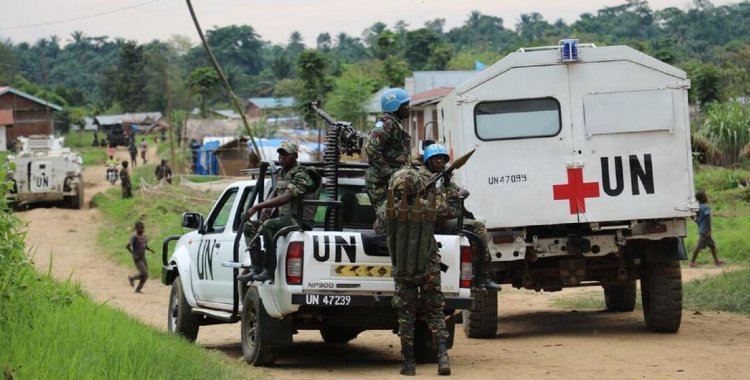In an interview with Lusa a week before embarking for the Democratic Republic of Congo (DRCongo), the Brazilian lieutenant general admitted that it was an "honor" to be appointed by the Secretary-General of the United Nations (UN), António Guterres, to lead that which is one of the largest peacekeeping operations in the world, with around 14,000 "blue helmets", especially at this critical moment in the African country.
"For me it was a pleasure, an honor, to represent the Brazilian Army, the Armed Forces, and to carry the Brazilian flag for the largest peacekeeping mission in the world today. It will be a difficult mission. We have this problem that has just exploded, that was the attack on Goma and Sake, with the M23 rebels taking control of these cities.
Since 1998, the east of the DR Congo, a country that was a Belgian colony and is a neighbor of Angola, has been plunged into a conflict fueled by rebel militias and the army, despite the presence of Monusco on the ground.
After decades of instability in the country, the armed activity of the March 23 Movement (M23) resumed in November 2021 with lightning attacks against the Armed Forces of the Democratic Republic of the Congo (FARDC) in the province of North Kivu (northeast).
Since then, the M23 has advanced on several fronts until Monday's capture of Goma, the capital of North Kivu, which is home to international non-governmental organizations and UN institutions and which the group occupied for ten days in 2012.
Taking into account the highly unstable situation on the ground, Ulisses de Mesquita Gomes will focus on protecting civilians, arguing that the solution to the conflict must be "political".
"My main mission is to protect civilians, to seek to stabilize the situation so that the civilian component of the UN can exercise its diplomatic role, because I see that the solution will have to be political to remove the M23 from the country," he said.
The new commander of the MONUSCO forces, who has 35 years of experience in crisis response, conflict management and peacekeeping, confirmed to the UN that he is ready to embark for the DR Congo on February 8, the date proposed by the United Nations.
Asked by Lusa whether he will try to implement a new military strategy to halt the M23's advances, Mesquita Gomes indicated that only when he arrives at the theatre of operations will he be able to have a clear idea of the capabilities of Monusco, as well as of the Congolese Armed Forces and other regional organisations.
The lieutenant general may carry out offensive operations with troops that were made available by African partner agencies.
"I have a strong mandate. The UN has three principles: consensus of the parties, impartiality, and the non-use of force except in self-defense or defense of the mandate. So I can use it that way. However, I have a mandate to carry out offensive operations with troops that were made available" by African mechanisms, he recalled.
However, he stressed that he will first have to arrive in the country and assess the capabilities on the ground in order to subsequently adopt a strategy, emphasizing the need for a political solution to remove the M23 from Sake and Goma, and prevent its advance into other geographic areas.
According to the UN, the conflict in the DR Congo has been fueled by the exploitation of natural resources.
The region is rich in gold, coltan and other minerals essential for the production of cell phones and batteries for electric vehicles.
The UN Secretary-General's Special Representative in the DR Congo, Bintou Keita, said that M23 earns around 288,000 euros per month from its marketing.
"There is mineral smuggling there and these armed groups rely on external support to take control of these areas. There are also other ethnic issues that come from the past, but I think the main cause is the search for control of the areas there are rich in minerals", he argued, looking at the reasons for the conflict.
Angola, one of the main military powers in the region, maintains a mediation role in the conflict, mandated by the African Union.
A mediation between the DR Congo and Rwanda under the auspices of Angola failed in December due to a lack of consensus on the conditions of an agreement.
For Ulisses de Mesquita Gomes, the president, João Lourenço, has done "an excellent job, trying to reduce tensions".
The UN Security Council also expressed on Thursday its "unwavering support" for the mediation led by Angola.
"I believe that the Luanda process, which is led by [Angolan] President João Lourenço, is an excellent solution. He is leading it very well. I believe that the solution involves regional mechanisms, notably the Luanda and Nairobi processes, which aims to hand over weapons by armed groups, demobilizing these groups. I believe that the Luanda process is extremely important for the solution of this conflict", he argued.







